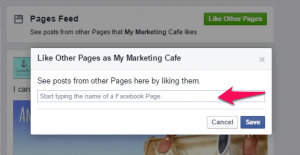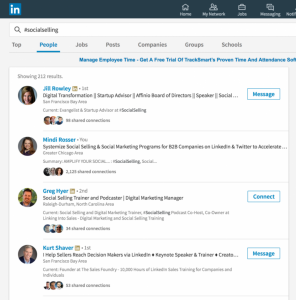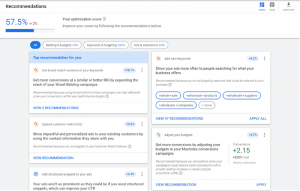You have a great business idea. The best, really. But if you’re thinking about bringing it to life, your first question is bound to be about money. After all—whether you bootstrap, take out a loan, or seek a different financing option—you need money to start a business.
So if you’re like most aspiring entrepreneurs, you’re probably wondering how much starting a business is going to cost you. And that’s a fair question. Unfortunately, predicting your startup costs is just that—predicting. Your actual costs might be more or less than your estimates.
But like anything, you don’t want to go into business ownership unprepared. So, estimates will quickly become your new best friend.
And I’m here to help you do it. Read on to learn business startup cost averages and how to estimate your expenses.
The average cost of starting a business
According to one study, the average business startup uses less than $ 10,000 of launch capital.
Of course, this is just an average. It’s not a business structure or industry-specific business average. And, it doesn’t separate home-based businesses from brick-and-mortar businesses.
Some businesses have six-figure startup costs; others, three figures. So, the less than $ 10,000 average is really only a starting point to give you an idea of how low your startup expenses could be.
Finding your business startup costs
If you want to start a business, you need to know how much it’s going to cost you. How else will you know whether you need to pursue financing options and how much to ask for?
You won’t. Plain and simple. That’s why 10 out of 10 aspiring entrepreneurs get at least a ballpark figure of how much starting a business is going to cost.
So whether you want to drain your savings account, secure investments, or take out loans, you need to know your startup costs.
You can find out how much starting a business is going to cost you by taking the following two simple steps:
- Determine your expenses
- Add them all up
And that’s basically it. Of course, determining your expenses is a bit more involved than doing some calculator work. Take a look at common startup costs to plan for:
- Office space and utilities
- Equipment and supplies
- Inventory
- Insurance
- Licenses and permits
- Professional fees
- Employee expenses
- Marketing
- Miscellaneous fees
Some are one-time expenses, others are recurring. And, some expenses are fixed (you pay the same thing month-to-month) while others are variable (your cost amounts change).
Read on for a more in-depth look at common startup costs and how to estimate them.
Office space and utilities
Do you plan on renting or buying a building? Or, do you plan on working from home? Your office space—and utility—costs will vary drastically depending on where you’re working and how many employees you have.
Your office space costs may depend on:
- Your state’s average cost of living
- The working space size you need
- Home-based vs. brick-and-mortar business
Utility costs also depend on the above office space factors, plus another one:
- How many people are working in the space
To find an office space estimate, determine whether you want to buy or rent space. Then, consider how much space you need. Finally, get quotes for commercial buildings or offices. If you want to cut back on expenses, you can set up a home-based business that comes with an office space price tag of $ 0.
Unlike office space expenses, most utility costs vary each month, depending on how much energy you use. Determine what types of utility costs you’ll have, like electric, gas, water and sewer, WiFi, and phone services, and come up with an estimate for each.
Equipment and supplies
No matter what type of business you’re starting, you need some sort of equipment and supplies to do your job—even if it’s just a laptop and phone. More realistically, you’ll probably need a good amount of items to get your business moving.
Examples of equipment and supplies to include in your cost estimate include:
- Furniture (desks, chairs, couches, etc.)
- Appliances (microwave, refrigerator, coffee machine, etc.)
- Copier
- Computers
- Phones
- Printers
- Vehicles
- Software (accounting, payroll, email marketing, social media management, etc.)
- Office supplies (pens, papers, Post-it Notes, etc.)
Write down every last piece of equipment and supplies you need and assign a cost estimate to each. Make sure to take into account the number of employees you have to get a more accurate figure (e.g., chairs and desks).
Equipment and supplies can easily add up, especially if you need to purchase commercial vehicles and industrial equipment.
Inventory
Do you plan on selling goods? If so, you need to buy some inventory. Inventory includes the products or materials that you plan to sell, including:
- Raw materials
- Products in the production process
- Finished products
- Supplies that are part of the finished products
You should also account for inventory shrinkage, which is when some of your inventory gets damaged, expires, or is stolen. Inventory loss is inevitable, so don’t be caught unaware.
To figure out your inventory startup costs, determine how many of each type of good you need. Then, get quotes from different vendors and suppliers. And last but not least, consider how you’ll store said goods and raw materials (e.g., rent storage, office basement, etc.) and how much that’ll cost.
Insurance
Before you even start your business, you should think about protecting it. There are a number of business insurance options you can sign up for to mitigate unexpected costs, like property damage, legal fees, and medical bills.
The type of business insurance policies you should sign up for depends on your business, its industry, and risk factors.
Common types of business insurance you may need to consider include:
- General liability
- Errors and omissions
- Business interruption
- Workers’ compensation
- Commercial property
- Home-based business
Once you determine which types of small business insurance coverage you need, you can start working with an agent to get quotes. Write down each type of insurance you need and the premium of each, then add them all up.
Licenses and permits
You may need licenses and permits to operate your business in a locality or perform certain actions, like collecting sales tax. Remember to factor in these expenses when estimating your startup costs.
Business licenses and permits you may need to obtain include:
- Business license
- Sales tax permit
- DBA license
- Professional licenses
- Building permits
You might also need other licenses specific to your industry. Contact the appropriate parties (e.g., your state) to find out how much licenses and permits will cost you.
Professional fees
Do you need an accountant or lawyer to help you set up your business? How about to contact as you run your business? Chances are, you (absolutely) will.
You may want to consult an accountant or small business lawyer from time to time to make sure your finances, licenses and permits, and books are in order. So, factor in professional fees, including:
- One-time consultations
- Regular check-in fees
Employee expenses
If you plan on hiring employees, your expenses add up quickly. Employees are arguably your biggest expense thanks to the added payroll costs that come with them.
To come up with your estimate for employee expenses, determine how many employees you plan on hiring. Factor in:
- Recruitment costs
- Time spent recruiting
- Salaries
- Benefits
- Employment taxes
- Insurance (e.g., workers’ compensation)
- Administrative costs
Many people follow the rule of thumb that an employee actually costs 1.25 – 1.4 times their salary. That means that your costs for an employee who earns $ 50,000 could be $ 62,500 – $ 70,000.
Marketing
You want people to know about your business, right? If you want to make sales, you absolutely do. Cue marketing. Marketing is the process of promoting your business to your target audience to get leads and eventually sales.
Marketing expenses may include:
- Pay-per-click ads
- Social media ads
- Radio ads
- TV ads
- Small business blogging
- Signage
- Business cards
If you haven’t thought too much about your marketing strategy, now’s the best time to start. Do some research on what strategy you should use (e.g., pay-per-click ads) to maximize your marketing spend and return on investment (ROI). Then, estimate how much each marketing strategy will cost you.
Miscellaneous fees
So, I’ve gone over some of the most common and universal startup expenses, like inventory and insurance. Unfortunately, this isn’t an all-inclusive list. You might have other fees specific to your business vision.
Popular miscellaneous fees include:
- Shipping fees
- Credit card processing fees
- Business website
- Independent contractor fees
- Incorporation fees
…And so on. Of course, the last thing you want is to come up with a final estimate that’s far less than your actual startup costs will be. So, my final piece of advice is to give yourself a cushion. Factor in an additional amount for unexpected expenses.
Happy estimating, aspiring entrepreneurs, and good luck!
Business & Finance Articles on Business 2 Community(17)








